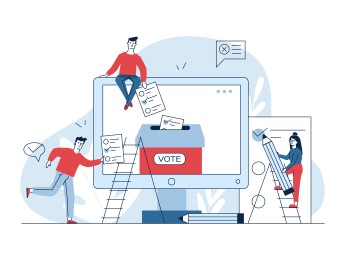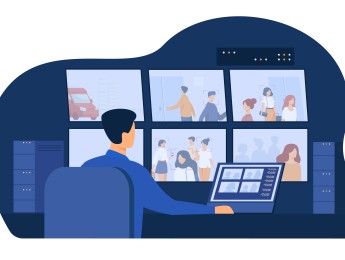Within any type of organisation, a strong focus will always be on managing public relations and etiquette. Public relations manage the organisation's public opinion and help maintain a positive reputation, which leads to greater support from clients and other organisations..
There are many methods of managing public relations, and in the modern world, this is primarily done through social media. Social media platforms have opened up worldwide opportunities for engaging with the public regarding different topics. Communicating with various audiences is ideal for building personal relationships and gaining trust.
However, in public relations, etiquette is essential to maintaining professional relationships. All high-ranking individuals within organisations respect etiquette, and utilising good manners and etiquette is a valuable method of showing and receiving respect.
Upon completion of this course, participants will be able to:
- Understand the importance of managing public relations and etiquette within an organisation.
- Recognise the consequences of poor public relations management and etiquette.
- Comprehend the concepts, principles and standards of public relations and etiquette.
- Explore how etiquette standards vary between cultures and regions and how to accommodate these when interacting with international clients or professionals.
- Represent the organisation at various functions and build relationships and respect from others within the field.
- Meet with important guests and clients and conduct oneself properly and respectfully.
This course is designed for anyone responsible for managing public relations. It would be most beneficial for:
- Social Media Managers
- PR Professionals
- Business Owners
- Senior Executives
- Marketing Managers
- Event Coordination Officers
- Communications Directors
This course uses a variety of adult learning styles to aid full understanding and comprehension. Participants will review case studies of established organisations to investigate their approach to public relations, highlight how these are effective, and identify areas for improvement.
The participants will be provided with all the necessary tools to partake in the learning methods which include seminars, open discussions, role-playing and individual activities. This combination of learning methods guarantee that the participants can develop a full and comprehensive understanding of the taught content, and demonstrate any related practical skills.
Day 5 of each course is reserved for a Q&A session, which may occur off-site. For 10-day courses, this also applies to day 10
Section 1: Introduction to Etiquette and Protocol
- Defining etiquette and protocol, as well as its necessity and importance within a business setting.
- Understanding how correct etiquette can influence external perceptions of the organisation.
- Exploring concepts and principles of etiquette and how these can vary depending on culture or global region.
- Assessing how to accommodate different types of people and meet all expectations.
Section 2: Managing Relationships
- Utilising etiquette and protocol to gain a reputation among clients, businesses, and other professionals.
- Identifying key behaviours that help earn respect – greetings, handshakes, introductions and more.
- Assessing people’s personality types and how that influences the way they communicate.
- Adjusting body language and verbal language depending on the person or audience.
- The importance of physical gestures – event invitations and gifts.
Section 3: Hosting Events
- The key stages of hosting an event – planning, feasibility study, designing, financing, and managing.
- Create a guest list and invite those who can benefit the organisation.
- Utilising dinners, parties, and other formal events as a networking method.
- Representing the organisation with confidence and pride.
- Staying true to the organisation's image and values to gain support and increase reputation.
- Common mistakes to avoid while hosting professional events.
Section 4: Dealing with Media
- How the new age of technology has evolved PR standards.
- Communicating directly with clients and other businesses through social media.
- Engaging in open discussions while maintaining organisational values.
- Acknowledging miscommunication and mistakes and making amends when appropriate.
- Facing confrontation with professionalism and confidence.
- Answering questions and accepting constructive feedback.
Section 5: Crisis Management
- Assessing risks to various aspects of the organisation and measuring their potential impact on public relations.
- Identifying circumstances of crisis as soon as possible to allow maximum recovery time.
- Evaluating reputation damage and strategising on how best to proceed.
- Utilising various channels to minimise damage.
- Understanding the necessity of accepting accountability and making genuine amends to resolve issues.
Upon successful completion of this training course, delegates will be awarded a Holistique Training Certificate of Completion. For those who attend and complete the online training course, a Holistique Training e-Certificate will be provided.
Holistique Training Certificates are accredited by the British Assessment Council (BAC) and The CPD Certification Service (CPD), and are certified under ISO 9001, ISO 21001, and ISO 29993 standards.
CPD credits for this course are granted by our Certificates and will be reflected on the Holistique Training Certificate of Completion. In accordance with the standards of The CPD Certification Service, one CPD credit is awarded per hour of course attendance. A maximum of 50 CPD credits can be claimed for any single course we currently offer.
- Course Code IND15-105
- Course Format Classroom, Online,
- Duration 5 days














